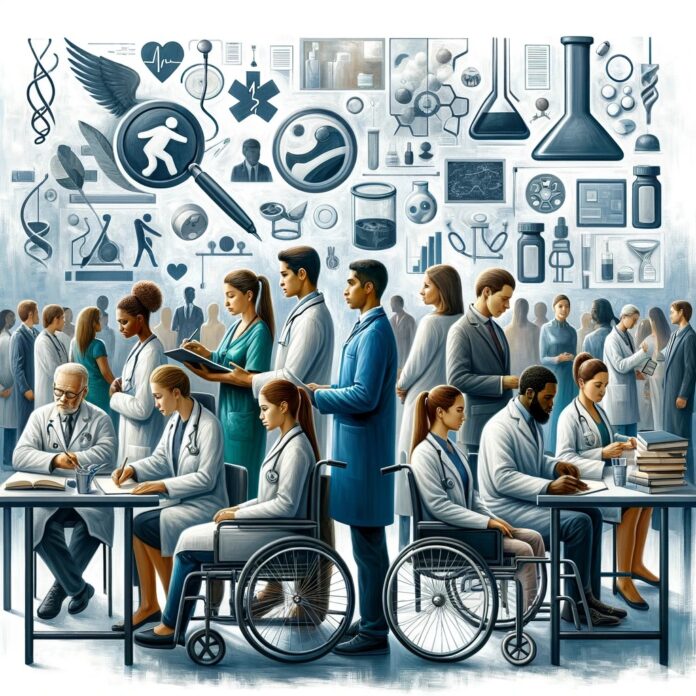Telangana: In a significant move towards inclusivity in medical education, the Telangana High Court is currently reviewing a challenge to the admission criteria for MBBS courses. This case, initiated by a medical aspirant with a significant locomotive disability, questions the fairness and inclusivity of the existing admission regulations, particularly for disabled students.
The issue at hand revolves around a specific admission criterion for the National Eligibility cum Entrance Test (NEET) which mandates that candidates must have “both hands intact with sensation, sufficient strength and range of motion” to be eligible for MBBS courses. The petitioner, who possesses a 75% locomotive disability, contends that this requirement unjustly excludes capable students with disabilities from pursuing a career in medicine.
The Telangana High Court, comprising Chief Justice Alok Aradhe and Justice Anil Kumar Jukanti, recognising the gravity of this matter, has issued notices to critical stakeholders in this domain: the Union Ministry of Health and Family Welfare, the National Testing Agency, and the Union Department of Empowerment of Persons with Disabilities and Social Justice. These bodies have been given four weeks to respond to the court’s inquiries.
The heart of this legal challenge lies in its broader implications for medical education policy and the rights of disabled individuals. The case raises critical questions about the inclusivity of educational opportunities and the barriers faced by individuals with disabilities in accessing education and professional training, particularly in highly specialised fields like medicine.
The current admission criteria have sparked a debate among educators, medical professionals, and disability rights advocates. While some argue for the necessity of specific physical capabilities in medical practice, others advocate for a more inclusive approach that recognises the diverse abilities and potential contributions of disabled individuals.
As the legal proceedings unfold, this case stands as a landmark in the ongoing efforts to make educational and professional fields more inclusive. The outcome of this case could potentially reshape the criteria for medical admissions in India, setting a precedent for how academic institutions accommodate and support students with disabilities. It’s a step towards a more equitable and inclusive society, where the capabilities of an individual are not judged solely on physical criteria but on their passion, knowledge, and determination to succeed in their chosen field.


